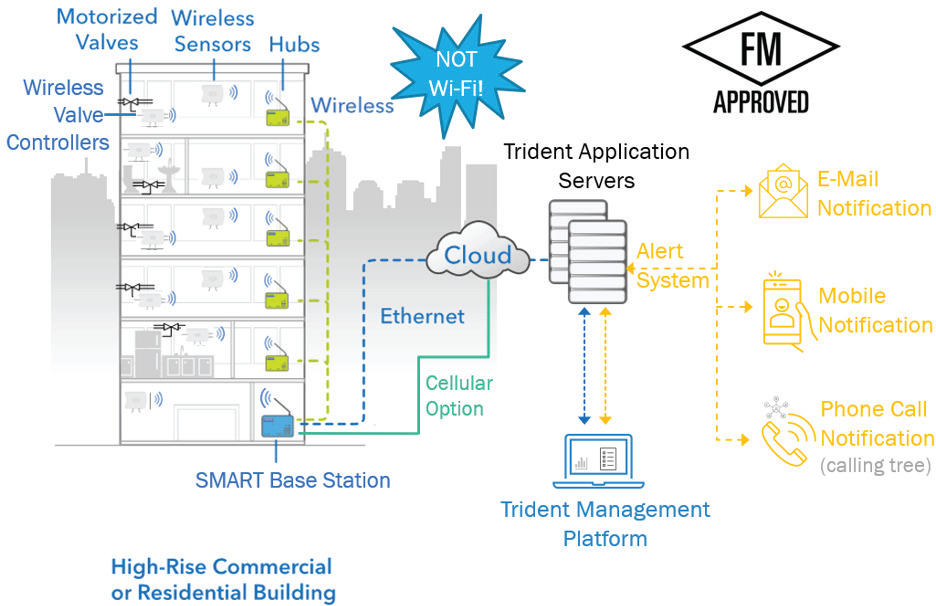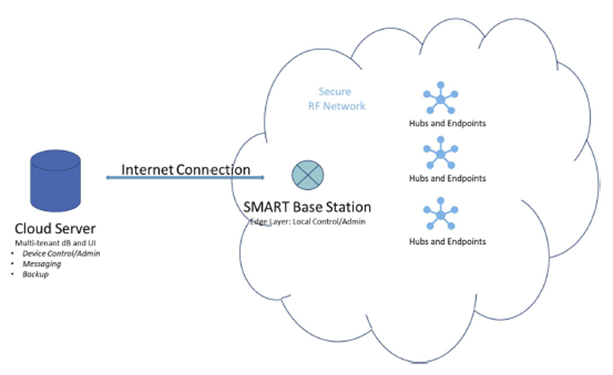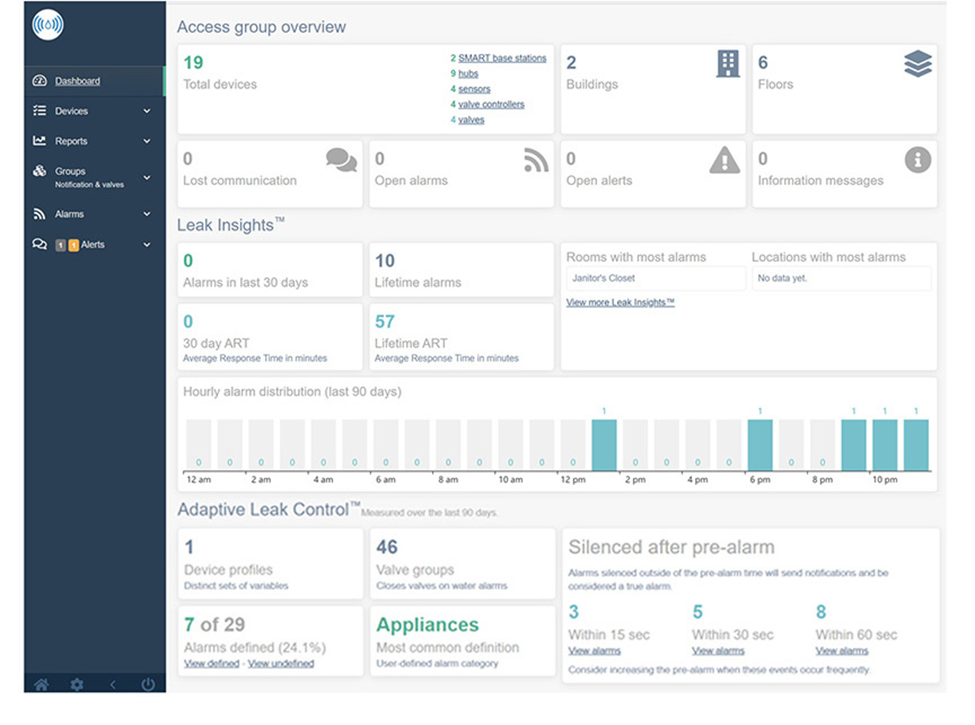How does the Trident System communicate?
Trident System Design

Logical Architecture
Client Layer
The client layer of the Trident System consists of the
following hardware devices: Hubs and Endpoints (Sensors/Valve
Controllers). These devices communicate to each other on an encrypted 915mhz
network. The communication is done via a proprietary set
of application messages which enable data to be sent to the SMART
Base Station (SBS).
Edge Layer
The edge layer of the Trident System is controlled by
the SMART Base Station (SBS). The SBS collects and collates data from the
client layer devices. Data such as water alarms and device statuses are
passed on to the Server layer via secure API messages. Since this layer
is directly connected to the client layer and receives messages, the SBS
role is to collect this data and determine what data needs to be passed
to the Server layer and how to keep the client layer communication
healthy. The SBS stores data locally which is used to determine device
status and network message paths for relaying messages from the cloud
layer.
- Server Layer
The server layer consumes the data from the edge layer
and provides a User Interface to view information and control the devices
in the client layer. The server layer consists of grouped cloud servers
including an application server, message queue server and a data base
server. This is a multi-tenant system with logical separation among the
tenants.
As the consumer of the data coming from the edge
layer, the server layer makes the data actionable via analytic dashboards
and application processing. Analytic dashboards include device
information such as last heartbeat, battery status and alarm history.
Application processing includes notification services for alarms and lost
communication as well as valve closing logic and control.

Related Articles
DT-501 Trident Hub Data Sheet
The DT-501 Trident Hub is part of the RF communication backbone of the Trident Leak Detection System. Hubs are required on the Trident System as they create a mesh network between other hubs as well as pass messages from endpoints (sensors/valve ...
Trident Overview
Introducing the Trident Wireless Water Leak Detection System. With over a decade of experience, TDG is the leader in water leak detection for commercial buildings with its cutting-edge FM Approved Trident technology- the gold standard for water leak ...
DT-550 Trident Smart Base Station Data Sheet
The DT-550 Trident Smart Base Station (SBS) is part of the RF communication backbone of the Trident Leak Detection System. The SBS is the brains of the system, receiving status and messages from hubs and endpoints (sensors/valve controllers). The SBS ...
DT-502 Trident Wireless Sensor Data Sheet
The DT-502 Trident Wireless Sensor is one of several endpoints TDG offers. The wireless sensor can be installed virtually anywhere as long as the two probes are on the surface you wish to protect. If you need to mount the sensor on a wall or off the ...
DT-552 Trident Wireless Sensor Data Sheet
The DT-552 Trident Wireless Sensor is one of several endpoints TDG offers. The wireless sensor can be installed virtually anywhere as long as the two probes are on the surface you wish to protect. If you need to mount the sensor on a wall or off the ...
